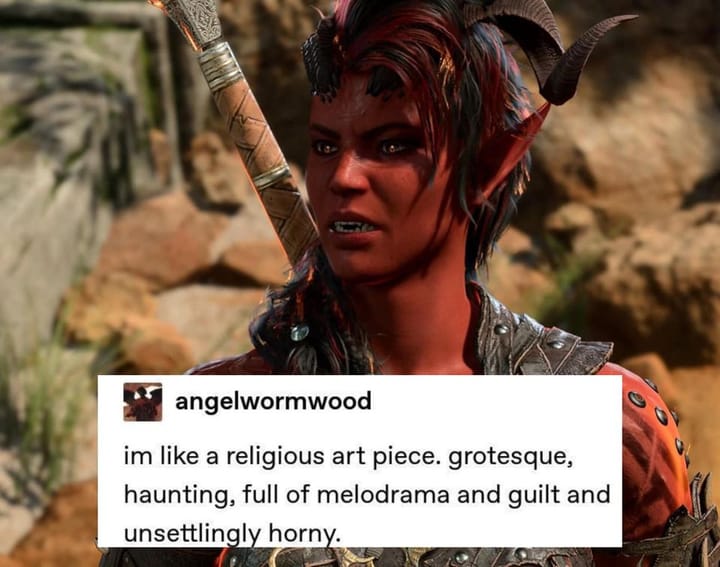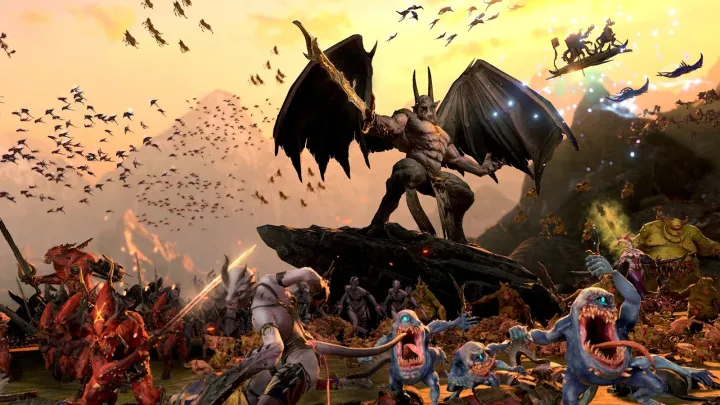Ludum mortuus est
hope you liked the games of 2023 because that's all folks

hope you liked the games of 2023 because that's all folks
There are approximately 330,000 people who work in the video game industry.
9,000 of them have been laid off in 2023.
3,000 more of them have been laid off this month. You know, the one that's only half over.
Over 100 were laid off today.
And that doesn't count the layoffs that went unreported in the gaming media which is also dealing with its own downsizing (there are many that I am aware of personally).
Or the layoffs disguised as Return to Office orders for remote workers who were hired long-distance specifically because of a remote work policy (there are many that I am aware of personally).
Or the layoffs disguised as "corporate restructuring" where employees are told their jobs still exist, just in another city that they will have to move to at their own expense (again, there are many that I am aware of personally).
Every game developer is terrified. Every game developer knows someone who has been long-term unemployed over the past year, or is in that state themselves, or has left the industry.
This is unsustainable. We cannot work like this. We cannot function like this.
Game development is in an extinction level event crisis, and it is entirely self inflicted.
Veteran industry members and watchers know that with many companies, shortly after a game's release, much of the development staff is let go. If a studio is large enough, they're sometimes given the option to move to another project in progress. Otherwise, well, that's the nature of the industry. You're either an owner or you work by the piece. The deal struck (sometimes overt, sometimes unstated) is that you either are there for significant performance bonuses (the bonuses I earned back in the 2000s for working on Dark Age of Camelot were far greater than my actual salary), or for connections and a resume line item you can use to leverage getting on a project that will have significant performance bonuses. Eventually you prestige out and make your own company. Or retire (is that still a thing? I'm 57, this is of more than academic interest.)
In 2023, there were many of these layoffs. But there were also a great many layoffs caused by venture capital buying studios, and then closing them. For no apparent reason. In Embracer's case, the owners apparently were chasing after Saudi investment capital, and when it failed to magically appear, over 1000 people were out of jobs. Whoopsy doodle.
Epic Games in September laid off over 800 people, almost 15% of the entire company. Epic is one of the most successful and profitable game companies that exist. Its CEO, Tim Sweeney, is worth over $7 billion. Fortnite prints money. For years, every other game company has tried to copy Fortnite, and mostly failed at the attempt. This is not enough to ensure job security, because, you see, number must go up faster.
EA in March laid off over 750 people in "corporate restructuring". EA is the largest game publisher in the world. But number must go up faster.
This is not a regular job cycle. This is decimation.
There are tens of thousands of experienced game developers who are unemployed. They will almost certainly leave the game industry, assuming they have skills which translate to the world at large (something which may be difficult for, say, a level designer).
The few game development positions that open up are swarmed by thousands of applications. HR workers are overwhelmed, and rely on software to filter them, which does a spectacularly bad job of it, and face the impossible task of somehow finding out how to interview 2000 people for 3 positions. Most likely, those 3 positions go unfilled because that task is insane. Or are filled internally, or by friends of people already at the company, because if given the opportunity, you would give someone you know that's out of work that lifeline. Anyone would. But that's another ghost opening.
For those who still have jobs? Remote work is a luxury no longer affordable. Unionization? Good luck with that (even though this illustrates how desperately it is needed). Cost of living raises? Be lucky you have a job. Money's tight, you know. Have you read the news lately?
This, more than anything else, is Bobby Kotick's revenge.
We have a real culture of thrift. The goal that I had in bringing a lot of the packaged goods folks into Activision about 10 years ago was to take all the fun out of making video games. We are very good at keeping people focused on the deep depression.
– Bobby Kotick, 2009
Kotick today, after playing a pivotal role in destroying any goodwill any outside observer might have for Activision Blizzard, sold the company to Microsoft and departed, deploying his undisclosed golden parachute. He's having fun, at least. Probably not that focused on deep depressions any more. Would that his former charges could say the same.
Because now, everyone wants to be Bobby Kotick. Every company is Activision. Every developer is terrified, not just focused, on the ongoing deep depression.
Terrified people are not very effective at their jobs.
You might have noticed in the above jeremiad, there hasn't been any mention yet of The New Thing, generative AI.
It's too new. It hasn't destroyed any jobs in gaming yet. But that's coming. And the wannabe Koticks who see their employees as entirely too loud drags on the corporate balance sheet LOVE that crap. All that noise about how AI won't take anyone's job, it will just be a "force multiplier" for developers to do more and make greater content?
Bullshit.
Watch this video, if you haven't already.
Gamers watch this video and think "Wow, that is some really trite and boring dialogue. Could we not?"
CEOs watch this video and think "I can fire so many people next week."
Designers? Just get the AI to shit out some dialogue, no one cares about it anyway. Artists? AI already pillaged all their work, no need for them to come in any more. Programmers? Feh, just slap some API framework together and call it a day, get an intern to do it.
Games in 2024 and 2025 will be a few labors of love, from indie developers or the few good AAA development houses still running, and piles upon piles upon piles of AI-generated vomit that will make people nostalgic for the days when most of Steam's catalog was Unity Store asset flips.
And gamers won't buy them.
And game development studio heads will ask what happened.
And no one will answer, because everyone is gone.
Ludum mortuus est.


